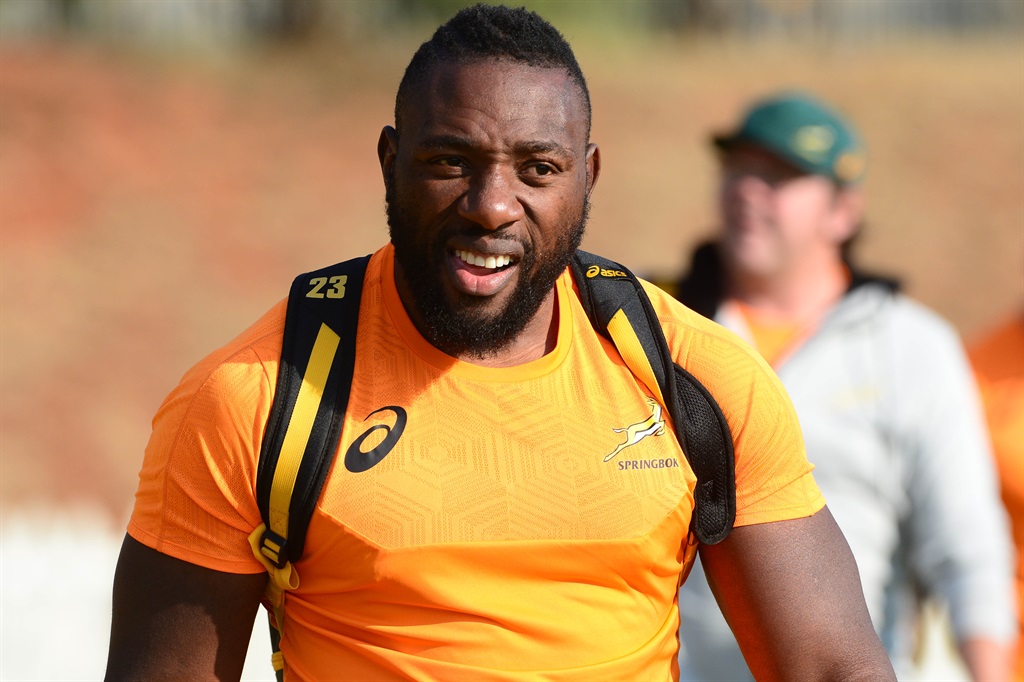


Tendai Mtawarira / Foto: Gallo Images
A beautiful new short film, narrated by rugby superstar, Tendai ‘The Beast’ Mtawarira, is released as hardships continue across the continent in the face of Covid-19, writes James Elder.
Okay, who is still confused by Covid-19?
After months and months of 24/7 coverage it seems the jury is out on so many critical details: The pros and cons of containment measures. When’s it safe to get back to school? To work? When’s it safe to hug someone?
But here is what we do know: Despite a continuing increase in cases, Africa is doing well in the fight against Covid-19.
This crisis has again brought out the continent’s innovative side. It has reminded the world that the first responders are in fact everyday people. And, frankly, it’s time we acknowledge that.
After considerable research, I set out below just how well parts of Eastern and Southern Africa, where I work, are doing. These range from frontline workers to entrepreneurship to government interventions.
But for a visual treat and inspiring look across this continent, go no further than a beautiful (and pro bono) video put together by a group of filmmakers from the epicentre of this pandemic, Convicts NYC.
Most recently these guys became famous for their “NY Tough”, film – a stirring video montage of New York, to the voice the NY Governor’s daily Covid-19 briefing. The video has about two million views and was shared by Ellen DeGeneres, Diddy, Hillary Clinton, & Katie Couric.
Now, on the Day of the African Child, Convicts has turned its attention to Africa, producing, “. “I want to show a story that is true to my home, my continent,” says rugby World Cup winner Tendai Mtawarira, who narrates the video. “We all feel the pain, but we also see the humility and heroes. And we see them every day. ‘Africa Strong’ is a testament to those people. Those on the frontlines of this pandemic and all the mess it brings. And I want this film released on a day that matters most at home.”
That day is of course the Day of the African Child. Every year since 1991, the Day of the African Child has been commemorated in memory of the young activists who were killed during the 1976 Soweto uprising in South Africa. It remembers the sacrifice of the young black students, who took to the streets protesting against an unjust education system, and demanding that they be taught in a language they understood. On this day, Africa Strong seeks to commend their courage and reflect on the challenges that young people still face today.
And yes, they are many. The direct and secondary impacts of the virus threaten to unravel the gains made for the poorest children across Africa. The pandemic – and the response to it – has put two very different pressures on families: the health fear, and an unprecedented increase in financial insecurity. Job losses and reduced sales are a near universal experience, and for those closest to the bottom of the economic pyramid, families with little or no savings and small food reserves, the impact is immediate, and compounds with children being out of school, increases in mental health issues, violence and sexual abuse.
We are told these issues may well worsen. “And yet people persevere,” says Mtawarira, who was born in Zimbabwe. “People stand side by side. Communities are rallying for one another. And ingenuity abounds.”
He is right. Consider these few facts from across Eastern and Southern Africa:
- South Africa sent 30 000 community health workers to survey 15% of its population in less than a month;
- Mozambique launched a free coronavirus hotline so people can connect to doctors, and thus reduce the number of people physically visiting health centres in its capital;
Ethiopia – a country of 100 million people – completed a door-to-door survey of its capital in just three weeks.
- Or when it comes to innovation: In Rwanda, entrepreneurs have access to grants, mentorship, and legal services. The country also has five anti-epidemic robots that will be used to administer temperature checks;
- Universities from Zimbabwe to Kenya are producing not for profit everyday masks, sanitiser, and personal protection gear for fellow citizens.
In education, the teleco airtel and UNICEF partnered to make access to educational online sites free in about a dozen countries. And beyond digital, organisations like UNICEF are helping tens of millions of kids keep learning through radio, SMS and printed materials.
Finally, when it comes to fighting poverty, Kenya, Namibia, South Africa and Madagascar have shown great leadership in getting money to those who need it most.
None of this is to say there are not tough times ahead. There are. Peaks will likely still come.
But the world should not forget – against so many odds – just how much people have done so far.
Africa is strong!
– James Elder is UNICEF’s head of communication for Eastern and Southern Africa. Follow him @1james_elder.

